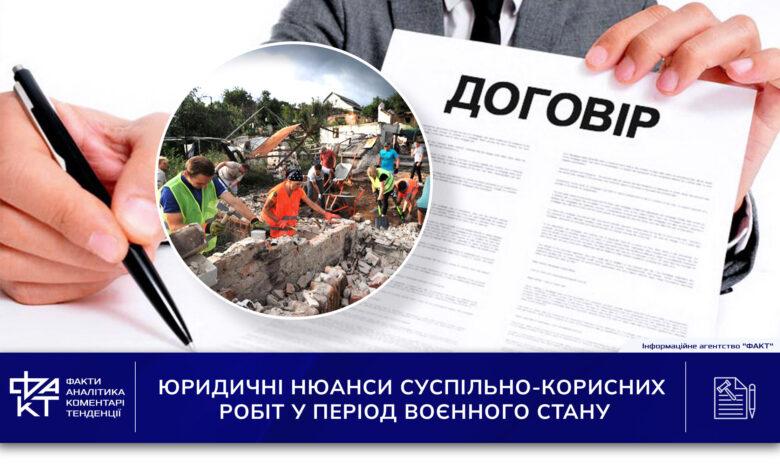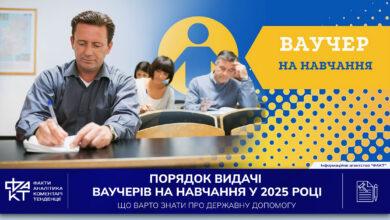“Restoration Army”: what you should know about socially useful work during martial law

The concept of community service in peacetime is traditionally associated with administrative punishment, public initiative or student volunteering. However, with the beginning of a full-scale war, this phenomenon took on a different, much larger and structured content. It is about the state program “Recovery Army”, within the framework of which thousands of Ukrainians in various regions perform work of a defense, infrastructural or logistical nature, which directly or indirectly contribute to the defense capability of the country. According to the state’s plan, participation in such works is a form of labor mobilization — with elements of urgency, temporality, and organizational subordination. However, many questions arise in practice: is participation in these works voluntary or forced? Who has the right to attract the population to them and under what conditions? Are there payment, social guarantees, the possibility of refusal or appeal? Which categories of the population are subject to involvement, and which are excluded from the list? And finally, how does this practice relate to labor legislation?
The Editorial Board of IA “FACT” turned to the lawyers of the “Repeshko and Partners” Bar Association for answers to these questions and providing thorough comments on the legal status of community service works within the framework of the “Recovery Army” program.
During martial law, the question of finding a job is very acute. A large number of internally displaced persons who were forced to leave their homes and move to other, safer places need employment like no other, because sometimes such families have to start from scratch. Unfortunately, it is not always possible to find not only a suitable job in a new place, but also employment in general, because the war made adjustments to the conduct of business and the country’s economy. The government’s initiative to implement the “Recovery Army” program was positive from this point of view. However, the legislative basis existed since 2011, but in 2022, some changes were made to the regulations, which allowed the program to actually work, taking into account the current reality.
Today, socially useful works under the “Recovery Army” program are carried out in 19 regions of Ukraine. Kharkiv, Donetsk, Kyiv, Chernihiv and Poltava regions are among the most active participants in the project. Since the start of the “Recovery Army” project in 2022, 226,000 referrals have already been issued for the participation of temporarily unemployed Ukrainians in socially useful work. According to state statistics, the majority of its participants are women. In our work, we often come across questions from clients: should we be afraid of the phrase “community works”, who can be involved in them and what guarantees do those who perform them have?
In accordance with the “Procedure for the involvement of able-bodied persons in socially useful works in the conditions of martial law”, approved by the resolution of the Cabinet of Ministers of Ukraine dated 07.13.2011. No. 753, socially useful works are types of temporary labor activities of able-bodied persons in martial law conditions, which are carried out for the performance of defense works, liquidation of man-made, natural and military emergencies that arose during the martial law period and their consequences, meeting the needs of the Armed Forces, other military formations and civil defense forces, ensuring the functioning of the national economy and the system of ensuring the livelihood of the population, and also cannot be related to entrepreneurship or other activities aimed at obtaining profit, and which include work and services that do not, as a rule, require special professional training.
It should be noted that able-bodied persons are involved in socially useful works for the purpose of performing works of a defensive nature, namely:
- registered unemployed and other unemployed persons, including internally displaced persons;
- employees of enterprises operating under martial law (in agreement with their managers), who are not involved in the implementation of mobilization tasks (orders) and are not included in the composition of civil defense object formations, – in the order of transfer;
- persons employed in a personal peasant economy;
- higher education students, students and trainees of vocational and technical educational institutions.
This Order regulates a fairly wide range of relations, but we are only interested in what directly concerns the “Recovery Army” project. Within its framework, employment is provided to registered unemployed and other unemployed persons, including internally displaced persons (IDPs). This means that unemployed people who are not subject to military service, and who are not restricted to work in martial law due to age and health, can engage in such work.
It is worth knowing that it is forbidden to involve the following categories of persons in socially useful works:
- minors and children aged fourteen to fifteen;
- women who have children under the age of three;
- pregnant women in the event that the performance of such work may negatively affect their health.
An approximate list of socially useful works performed under martial law is as follows:
- Repair and restoration works, first of all, works performed at the objects of life support.
- Clearing of rubble, clearing railway tracks and highways.
- Construction of protective structures of civil protection, quickly constructed protective structures of civil protection and creation of the simplest shelters, anti-slide, anti-flood, anti-slide, anti-avalanche, anti-erosion and other engineering structures of special purpose.
- Repair and construction of residential premises.
- Works on maintaining the readiness of protective structures of civil protection for their intended use and operation, adaptation of existing above-ground or underground premises for the simplest shelters.
- Loading and unloading operations performed on railways, ports, etc.
- Agricultural work (spring field work, harvesting, haying).
- Providing assistance to the population, primarily to persons with disabilities, children, senior citizens, the sick and other persons who do not have the opportunity to independently counteract adverse factors of man-made, natural and military nature.
- Organization of life support for citizens affected by hostilities.
- Works to ensure the stable functioning of high-security facilities in case of emergencies.
- Works related to maintaining public order.
- Arrangement, restoration and beautification of coastal strips, natural springs and reservoirs, riverbeds, strengthening of dams, bridge structures.
- Harvesting firewood for the heating season.
- Liquidation of spontaneous landfills and arrangement of landfills for solid household waste.
Specific types (list) of socially useful works are determined by military command or military administrations, local state administrations and local self-government bodies, taking into account this list. At the same time, if necessary, types of socially useful works, not provided for in the specified indicative list, may be introduced, taking into account the circumstances that have developed in the region (locality, settlement) and adverse factors of man-made, natural and military nature, which pose a threat to the population and significantly reduce the level of ensuring its livelihood.
The performance of socially beneficial works in radioactively or chemically contaminated territories, in areas of occurrence of dangerous and especially dangerous infectious diseases, locations of explosive objects is allowed only with the written consent of the person who expressed a desire to be involved in their performance, in compliance with the requirements of the legislation on labor protection. At the same time, it is not allowed to carry out public works on territories that do not have the status of defense.
Please note that payment for this type of work is made according to the time worked. Currently, project participants receive from eight thousand hryvnias to twelve thousand hryvnias. That is, the salary cannot be lower than the minimum wage and cannot exceed one and a half times the minimum wage.
Most often, the unemployed are involved in:
- works to ensure the livelihood of citizens affected by hostilities;
- unloading, packing and delivery of humanitarian aid;
- provision of social services to citizens in places of concentration of internally displaced persons and targeted assistance to IDPs;
- weaving camouflage nets, preserving products for the needs of the Armed Forces,
- tailoring of clothes and repair of military ammunition;
- assistance for the care of wounded servicemen in medical facilities;
- demolition of rubble, restoration of residential buildings and premises, clearing of railway tracks and highways damaged as a result of hostilities;
- arrangement and fortification of roadblocks, basements for shelter.
Financing of socially useful works performed by registered unemployed and unemployed IDPs of working age from the number of insured persons who do not have the status of registered unemployed is carried out from the funds of the mandatory state social insurance fund in case of unemployment within the limits of the funds provided in the budget of the Fund for the relevant purposes, as well as funds from local budgets, enterprises, institutions, organizations, and other sources not prohibited by law.
In fact, the mechanism for involvement in community service works as follows. According to p. 27 The procedure for registration, re-registration of registered unemployed and keeping records of jobseekers approved by Resolution No. 446 of the Cabinet of Ministers of Ukraine dated March 30, 2023, during martial law, in the absence of suitable work, the registered unemployed are directed to public and other temporary work or socially useful work. Therefore, in the absence of a suitable job for a registered unemployed person, participation in public works and socially useful works is considered a suitable job for him.
At the same time, part 1 of Art. 45 of the Law of Ukraine “On Employment of the Population” stipulates that the registration of an unemployed person is terminated in case of two refusals to offer a suitable job. As we can see, an unemployed person can refuse the proposed community service, but in case of refusal of 2 offers of suitable work, from the point of view of the state, including participation in community service and refusal of community service in the conditions of martial law, the registration of the unemployed person is terminated.
It is important that a fixed-term employment contract is concluded with each person from among the “Recovery Army” for the period of participation in socially useful works. Such persons are fully covered by the requirements of labor protection legislation and mandatory state social insurance. Mandatory conditions for involvement in these works are to conduct briefings with citizens at the workplace, including on issues of safety, providing such persons with personal protective equipment and work tools. At the same time, the participants of the “Recovery Army” do not need special training and professional training.
It must be remembered that in accordance with Clause 2, Part 8, Article 31 of the Law of Ukraine “On Employment of the Population”, it is stipulated that employment contracts for a period of time, which cannot exceed 180 calendar days in total during the year, are concluded with the unemployed who are involved in the performance of works of a temporary nature. This actually means that one or more fixed-term contracts can be concluded with an employee during the year, the main thing is that the total term of such contracts cannot exceed 180 calendar days.
There is another nuance in the case of involvement of a person registered as unemployed at the employment center (receiving unemployment benefits) in socially useful works. Unemployment benefit payments are suspended in this case, but they resume after the unemployed person stops participating in socially useful work.
It is important to know that the period of participation of an unemployed person in socially useful works is counted towards his insurance length of service, because during the performance of such works, all necessary contributions and accruals are paid as for ordinary work, for example, a single contribution to mandatory social insurance, and the first five days of temporary disability are also paid.
For a referral to socially useful work, citizens can contact the Employment Center or find information about work in their area on the official portal – https://www.dcz.gov.ua/





